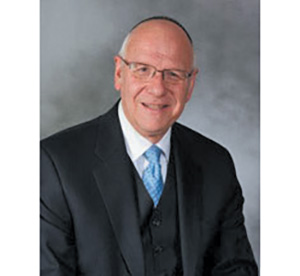
Parshat Vayeishev
Sefer Amos, the third of the “minor” prophetic books that comprise Trei Asar, opens with a scathing criticism of those kingdoms that surround Israel, the Northern Kingdom, and goes on to focus on his real “target,” the Israelite kingdom. And that reproach is the haftarah we read this week. As we have pointed out in the past years, the connection to the parsha is rather obvious as the navi condemns Israel “al michram bakesef tzaddik,” for selling the innocent for monetary gain, decrying the widespread bribery that filled the land and perverted the judicial system. Our rabbis saw in the prophet’s words an allusion to the sale of Yosef of which we read in this parsha, especially as Chazal referred to him as Yosef “HaTzaddik.” But it is the closing words of the haftarah that I find to be especially illuminating.
Like both Moshe Rabbeinu and David HaMelech before him, the navi Amos was no more than a simple herdsman, a fact to which he himself attests: “…Hashem took me away from the sheep and He told me: ‘Go prophesy to My people, Israel’” (7:15). Yet he predicts the horrible punishments that await the nation. He strongly censures the political leadership and confidently berates their religious guides. His strong language and terrifying message angers the people who remained blind to their misdeeds. They turn against this simple shepherd for daring to rebuke the leaders and guides of the Israelite Kingdom. In fact, the high priest who served the golden calf in Bet-El, Amatziah, reports to the king (Yerovam II) that Amos has rebelled against him and is raising support from the people. Amatziah even tells Amos to leave the country and return to his land, the Southern Kingdom of Yehuda.
In response to these accusations, the navi explains that he is merely God’s instrument. He tells the people that the words he speaks are not his and the warnings he gives are also not his own. It is Hashem who will not punish unless He reveals His plans to His prophets. It was for this reason that he came to the nation and this reason why he continues to prophesy—despite the threats and the danger.
Amos closes his message by explaining why he cannot simply cease these prophecies and leave the people. It is not a matter of choice, he says, but of necessity. Delivering Hashem’s words to the nation is no more than a natural reflex. “If an alarm sounds in the city, won’t the people tremble?” he adds. In the same way, he concludes, “Hashem E’lokim diber, mi lo yinaveh”? If God speaks, who can desist from prophesying? One who receives a message from God feels the irresistible urge to share that message with his people.
How fortunate that over the millennia we have received so many messages from Hashem.
But the question that remains is: Will we listen?
By Rabbi Neil N. Winkler
Rabbi Neil Winkler is the rabbi emeritus of the Young Israel of Fort Lee and now lives in Israel.













